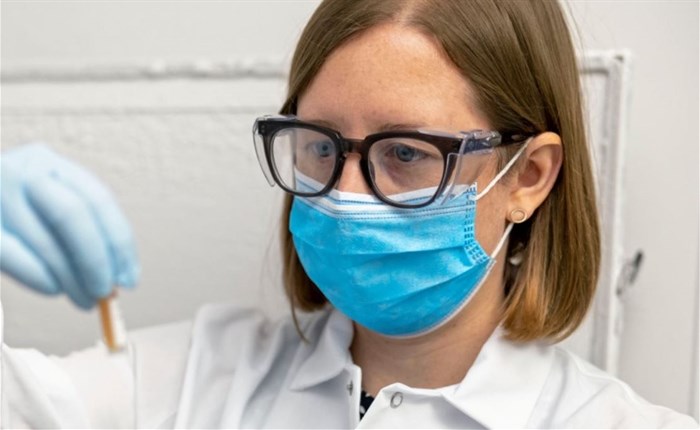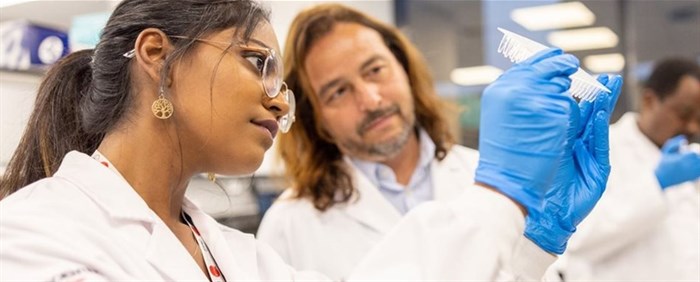
Subscribe & Follow
#HIVToday: Abbott's top scientist speaks to staying one step ahead of a constantly mutating virus

In response to this, Abbott founded the Abbott Pandemic Defense Coalition which comprises 20 scientific and public-health organisations from across the globe who are committed to detecting and responding to emerging viral threats.
Mary Rodgers - principal scientist at Abbott’s diagnostics business - addresses an ongoing global commitment to pandemic preparedness and the need to continue research in understanding how known viruses are spreading. This, in order to identify new viral outbreaks so that we can stop them from becoming the next pandemic.
Here she unpacks what this looks like within the framework of the HIV virus.
The treatment of HIV-positive patients has evolved. It's now considered more of a chronic disease rather than an imminent death threat. Could you speak to that narrative and explain why there's a shift in emphasis by epidemiologists of late on HIV harbouring the potential for a new pandemic outbreak?
This is a really interesting question. I think because we have many HIV-positive youth now on treatment that can suppress the virus, HIV is seen as a lifelong disease instead of as a killer. But we still know that a significant portion of new infections are caused by people who don't have it [and who unknowingly get infected]. That's why we're still getting new, more and more cases.
Because we have these treatments, it seems like the HIV virus could be something that we could eliminate, and we do have the tools to do that. If we eliminated the virus, then we could live in an HIV-free world, and I think that's the direction we need to go in. Then we can identify everyone who needs treatment and really cut down on cases. Then if people don't have the virus, HIV would not even be considered a long-term disease.

I think it's also important to note that the virus is constantly evolving and mutating. In fact, if you compare the sequence of the envelope-protein which is the outer virus, that's the region that your immune system detects, and if you were to compare two divergent strains of HIV, there are only 50% similarities to see in that region in each respective strain.
So if we want to have a vaccine or diagnostic tests that can work for all strains, we have to constantly be monitoring the spheres as they're evolving. So that's why there's also continued focus on monitoring the HIV virus because if it mutates it could be missed by a diagnostic test, for example, and then you could have a silent outbreak of HIV that doesn't get detected. That's what we want to avoid, and that's why we've been working on it for so long.
How far are we in terms of getting an HIV vaccine?
We would love to have a vaccine. I went to an HIV international conference, and it looks like we don't have something promising yet. I think it's because the virus changes so much and because it attacks the very immune response that you're trying to elicit to protect someone.
It's really a difficult nut to crack and so I don't have anything on the radar that I would say is going to save the world just yet, but people are not giving up; and that's the important part.
We've tried a lot of things and actually, I'm hopeful that maybe the messenger RNA vaccine approach could be the answer because it's a completely new approach, and it could actually be the one that works, but I haven't seen data yet.
So we have to give it a little time.
I see that HIV self-testing samples are on the market. Will this be targeted at private individuals or to community workers and health workers as part of their fieldwork and research work?
The end-goal is to reduce cases right? So if we're making testing more available by giving self-testing options to people who might feel a barrier of having a test around another person, then at least they are now getting a test-result that they never would have otherwise known about.
So we really want to link them to care. It's always better if we can have someone who is able to guide them to getting treatment - but at least if someone is getting a test, that's the first step - and we want to encourage that with self tests.
Is there any particular HIV research project in the Western Cape that you might want to highlight?
With HIV specifically, we have done a lot of work with Tulio de Oliveira's team. De Oliveira is a professor at Ceri in South Africa and was named one of Time’s 100 most influential people of 2022 for his discovery work on the Omicron variant. Over the years, we've done analysis of some very complex genomes that came from the Congo Basin. We've analysed them together with de Oliveira's team. We've also looked at the history and molecular sequence of the HIV CRFO1, that's a recombinant form, that's very common in Asia.
But all the strains originated as a recombinant of a virus in Africa. So we took sequences that we had completed from Africa, and then compared them to the sequences in Asia, and we actually were able to calculate when we think the events occurred that caused it to migrate.
So we've been doing characterisation of HIV from sequence level with de Oliveira for a while. We're continuing that work. Obviously we're looking at sequences from blood donors in South Africa, for example, and continuing to do work like that.
Five years from now, where would you want to see research and treatment related to HIV?
My hope is that we'll continue to improve our available vaccine options, but then also better treatments. I think we're going in that direction with now long-acting injectable medications that are really going to suppress the virus long term, especially in people who might forget to take a pill every now and then - and that's how hopefully we can prevent new infections as well.
I'd also like to see more people who have HIV being diagnosed because that really is the beginning of the whole care continuum. If we can reduce those numbers of people who don't know they're infected; we can really stop this virus.
Related
New HIV prevention drug could reach poorest countries by 2025, says health official 18 Dec 2024 Viatris invests R100m in Isando to increase local ARV manufacturing 4 Dec 2024 HIV: there’s hope for a cure – where we stand now 3 Dec 2024 ARV supply set to triple: South Africa's new plan to tackle HIV 2 Dec 2024 The Aids Healthcare Foundation rolls out in Mpumalanga 20 Nov 2024 Historic first: Africa hosts Inclusive Health Research Awards 25 Oct 2024 African ingenuity to be showcased in electric motorcycle expedition from Nairobi to Stellenbosch 23 Sep 2024 Sanlam Investments Multi-Manager bolsters leadership team with key promotions 12 Sep 2024











